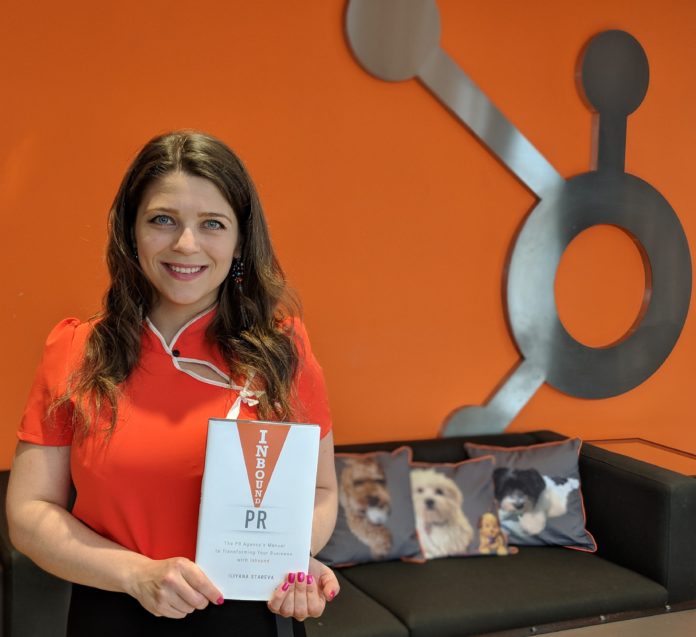By Iliyana Stareva
Most public relations firms today have a big problem. They’re outbound organizations trying to survive in an inbound world. Other industries are figuring out that the way people buy has fundamentally changed. In response, many marketers have switched to an inbound approach. Rather than pushing their (top-down, interruptive) messages on customers, they entice them and draw them in with multichannel techniques to earn peoples’ attention and trust via relevant content. They create and foster meaningful dialogues. And it works: People come to these marketers on their own. It’s time PR took a page from this book.
When you look at what’s going on everywhere else in the world, it’s clear that PR firms need to move away from the old-school “push” methodologies. Many still rely too heavily on media relations, spamming editors with press releases and cold calling to convince them to cover a story they probably have no interest in.
Here are some hard truths today’s PR professionals need to learn:
Chasing, cold calling, and mass mailing the media doesn’t work. Journalists now use online and social profiles to do research. They use social media to build their brands and find stories on their own. They don’t want or need to be pitched. So, do them a favor: Have them find you.
Pull the media in with relevant content that they can find when they do research. Turn your (dry) press releases into more engaging, keyword-optimized blog posts, videos, or infographics, and create an inbound PR newsroom on your website where you can store all of this.
You can, and should, be measuring ROI. PR has always been known for its inability to show the real ROI of its activities; you can’t really tie a dollar value or a number of new customers to an article in a magazine. But when they use inbound, PR agencies can measure ROI. That’s because each phase within the inbound marketing methodology—Attract, Convert, Close, and Delight—has a particular goal that is SMART (Specific, Measurable, Achievable, Realistic, and Timely) and numeric.
Media relations is only a small part of what PR firms should be doing. With the growth of digital media, PR practitioners should be creating relevant content for all four types of media in the PESO model: Paid, Earned, Shared, and Owned. Traditionally, PR has focused on “Earned” media, which is just one small slice of the pie. Now you must consider all possible avenues and plan ways to use the other channels available to you. You must think beyond media relations and press releases and focus on developing more creative ideas.
It’s time to stop giving away valuable content. PR people typically handle the presentation of big research and reports, and then share them with the media. Shockingly, these highly valuable PDF files are often just put on the website as a free downloadable link. This is a costly mistake.
Instead, create a landing page where you ask people to fill out a form with their name, email address, and company, and only those who fill it out can get the report. Now you’re not giving away valuable content for free, but in exchange for their contact details, which you can use to engage further.
Resist the temptation to be a generalist. A lot of PR agencies believe if they choose a niche, a specialty, or a particular industry, they will limit themselves and miss out on potential revenue. But by trying to appeal to everybody, you end up appealing to nobody.
Positioning is hard. But it’s necessary if you’re to stand out and be seen as an expert. Otherwise, why would someone choose you among the 560,000 other agencies out there?
It’s not too late to go digital and leave behind the old traditional outbound tactics that no longer work. As gifted storytellers, you’re still the best content creators out there. Now it’s up to you to master inbound methods to share that content, measure your results, and do it so masterfully that people find their way to you again and again.
Iliyana Stareva is the author of Inbound PR: The PR Agency’s Manual to Transforming Your Business with Inbound (Wiley, 2018, ISBN: 978-1-119-46221-7, $25.00). She is global partner program manager at HubSpot, focusing on aligning HubSpot’s expanding global teams to better service the agency partners and smoothly roll out changes to the program. For more information, visit www.iliyanastareva.com.






